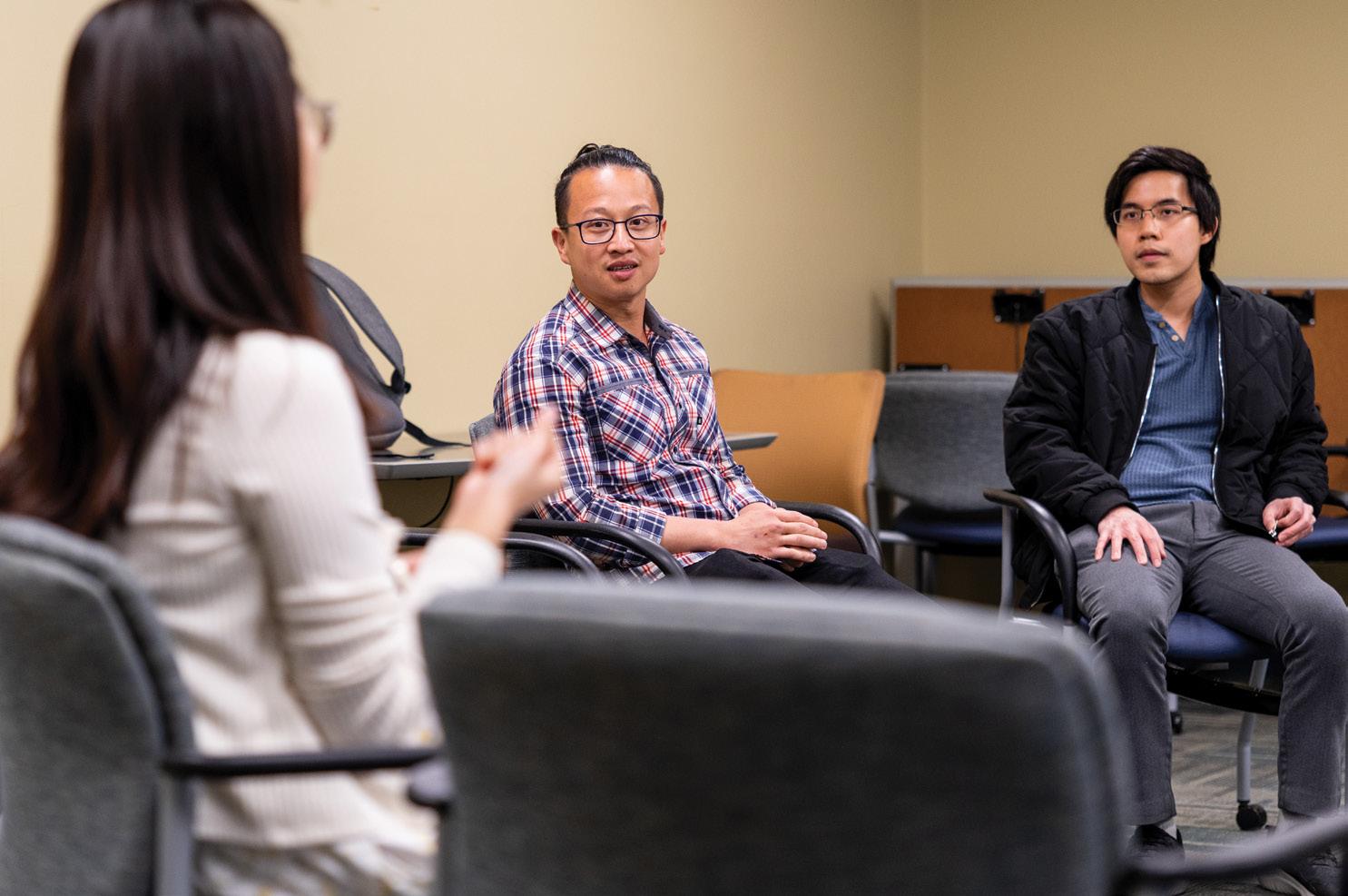
1 minute read
MINDFULNESS IS ONE OF OUR BEST TOOLS FOR UNDERSTANDING OURSELVES, OTHERS.
Braver and Diana Parra, research assistant professor in the Brown School, worked together to convene the cluster after recognizing that there were people in various corners of the university who shared their passion for incorporating mindfulness into teaching, research, and personal practice.
“My interest in mindfulness came from using it as a way to cope with stress from work,” Parra said. “Over time, it started merging with my teaching. I now begin all of my classes with a short meditation practice.”
Advertisement
Braver also found and published quantitative evidence that his seminar, which teaches mindfulness to first-year students, helped improve their performance and stress levels.
Parra believes that the “technology” of mindfulness is more relevant than ever in the wake of the COVID-19 pandemic. “During COVID, everybody was forced to pause,” she said. “In that moment where you stop and take a break from everything — which is what you do in meditation — a lot of things rise to your conscious awareness that you might not be equipped to deal with. Mindfulness offers a tool for you to develop more compassion for yourself in those moments.”
According to the leaders of the cluster, mindfulness is a unique topic where ancient cultural traditions are in agreement with cutting-edge science. “There is a rapidly growing body of evidence indicating that mindfulness is one of the best tools we have for understanding ourselves and the people around us,” Braver said. “Hopefully, we can use that understanding to reduce biases and make the world a better place.”










